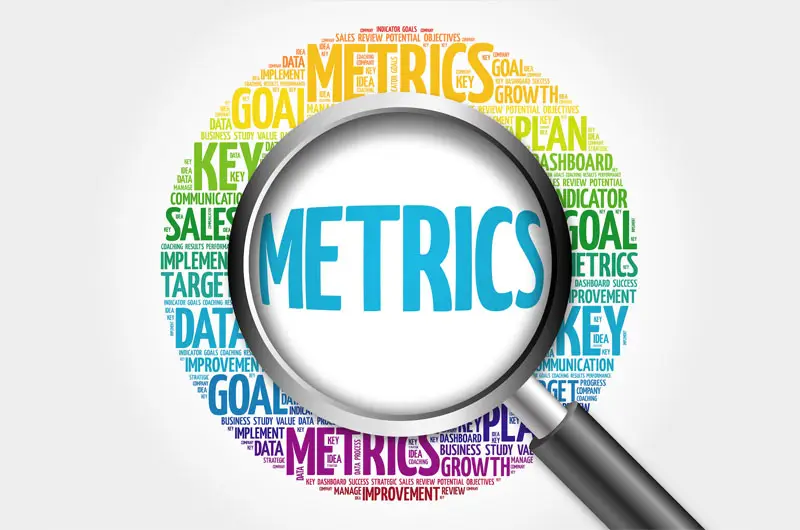06 Jul Metrics for Grant-Seeking By: Kellie Brungard, GPC
Posted at 18:00h
in Competency Two, Evaluation, Funding, Funding Opportunities, Kellie Brunguard, Organizational Development
As a grant professional, are you asked to identify performance measurements for your organization or clients? Evaluating the performance of a grant department or grant professional is a nuanced task. Yet data helps leadership and the board of directors quantify the year-to-year success and progress toward department goals. All too often, an organization will set unrealistic goals without adequate resources or available opportunities or set unreasonable expectations for the number of applications an individual needs to submit. Looking at a “success rate” can fail to consider the organization's readiness, quality of program design, or ability to identify strong opportunities and stewardship. So, how can an organization effectively evaluate the performance of a grant department and set realistic goals? How can grant professionals articulate their skills and achievements to those who are data-minded?
06 May Financial Audits for Small Nonprofits By: Kellie Brungard, GPC
Posted at 08:30h
in Competency Two, Kellie Brunguard, Organizational Development, Organizational Readiness
Audited financials are a common component of grant readiness discussions and are often requested by funders. However, new or small nonprofits may wonder if an audit is really necessary. Understanding why an audit is helpful to a funder, how to find an auditor, and what to do if an audit seems unattainable can help small nonprofits plan.
31 Mar Competition and Training: Not just skills for the court By: Kellie Brungard, GPC
Posted at 18:00h
in Competency Two, Funding, Kellie Brunguard, Organizational Development, Organizational Readiness, Research
March Madness is in full swing, and all this talk about competition and brackets makes me think about how grant writing relates. Grants, much like professional sports, are competitive, and increasingly so. We can’t come in on gameday and put together a proposal without any preparation and expect to win big. To be competitive, your grant team must train and prepare to advance through the rounds and win awards. So, while building out/reviewing your bracket for college basketball, consider how these strategies can help your grant team gain a competitive edge.
28 Jan Did You Know: Congressionally Directed Spending by: Ana Teslik, Ph.D., MPA, GPC
Posted at 13:06h
in Competency Two, Funding, Funding Opportunities, Organizational Development, Strategy
Diversifying a portfolio of funding opportunities can be more than seeking foundation and federal grants. In the current funding landscape, organizations have the capacity to add legislative affairs to their ongoing activities in the pursuit of additional funds to achieve their mission.
Did you know that nonprofits are eligible to pursue Congressional Directed Spending and/or Community Project Funding?
21 Jan Applying the Stages of Group Development to Grants By: Shauna O’Toole, MA, CFRE, GPC
Posted at 18:00h
in Competency Four, Competency Three, Competency Two, Culture, Organizational Development, Program Design, Relationships, Shauna O'Toole, Strategy
Have you encountered inefficiency, frustration, or even conflict when working with a group to develop a grant proposal? Take heart. This is normal. Most teams struggle and experience conflict before they begin performing at their peak. The Stages of Group Development framework, developed by Bruce Tuckman (1965) describes this process. This blog will briefly describe Tuckman’s framework and then apply these ideas to grant proposal development.
03 Jan Ready for Reset? So Is Your Grant Strategy by Tracey Diefenbach, GPC
Posted at 19:02h
in Competency Eight, Competency Seven, Competency Two, Grant Calendar, Relationships, Strategy, Tracey Diefenbach, GPC
It’s January. Are you ready for a reset? Better yet, is your grant strategy ready for a reset? I am just hunching here, but I think the answer may be “yes!”
26 Nov Did You Know? Nonprofits are Accountable for Impact Measurement by Roxanne Jensen, Ed.S., GPC
Posted at 20:09h
in Competency Two, Logic Models, Organizational Development, Program Design, Roxanne Jensen, ED. SPEC., Strategy
“When the money keeps rolling out, you don’t keep books. You can tell you’ve done well by the happy, grateful looks. Accountants only slow things down, figures get in the way.” – Evita by Andrew Llyod Weber.
In actuality, did you know that nonprofits are accountable for impact measurement?
Impact measurement is a critical process for nonprofits to assess their effectiveness in achieving their mission and making a positive difference in the communities they serve. By measuring and evaluating their impact, nonprofits can determine whether their programs and initiatives are successful and identify areas for improvement. Impact measurement is a critical aspect of nonprofit management. This aspect involves assessing and quantifying the outcomes and effectiveness of a nonprofit's programs and initiatives in relation to its stated mission and goals. By measuring the impact of their work, nonprofits can demonstrate accountability to their stakeholders, including donors, beneficiaries, partners, and the public.
12 Oct Grant Ethics: Organizational Capacity and Readiness Grant Ethics
Posted at 10:53h
in Competency Six, Competency Two, Consulting, Courses, Ethics, Ethics, GPCI Competencies, Grant Training Series, Grant Writing, How-To, Julie Alsup
Grant Ethics: Organizational Capacity and Readiness Grant Ethics Session 3 of the Grant Ethics Series Issues of ethics abound when grant professionals examine their organization's readiness to apply for grants. Is the grant aligned to the organization's strategic plan or is the organization chasing money and causing...










